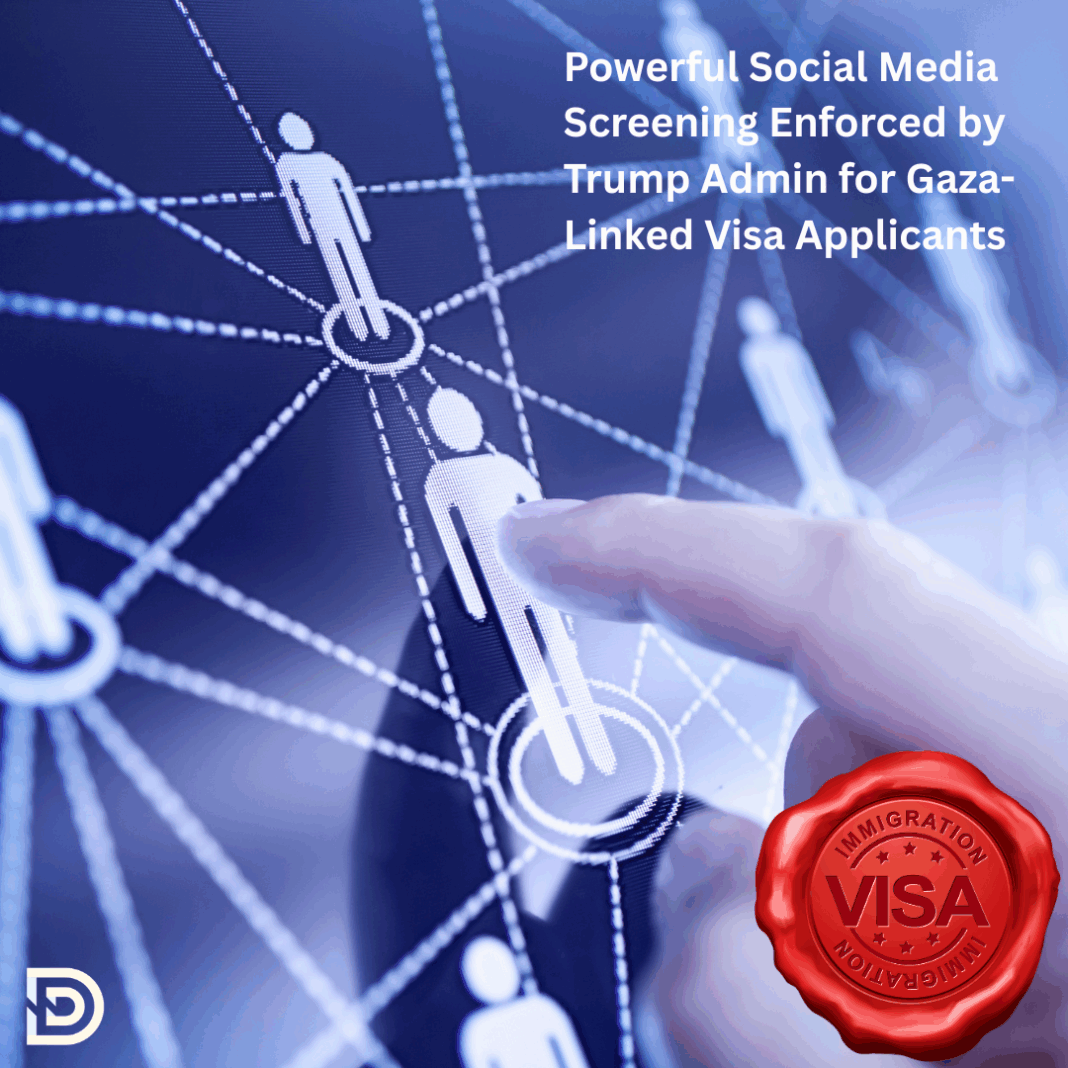The Trump administration has created a new rule for people who want to visit or move to the United States. If someone has been to the Gaza Strip since January 1, 2007, they will now face a special check of their social media accounts.
New Rule for Visa Applicants Linked to Gaza
This rule applies to everyone asking for a visa—whether it’s to visit, study, work, or live in the U.S.
Even people who went to Gaza as part of humanitarian aid groups, or in official jobs like diplomacy, must go through this new process. A message from the U.S. State Department shared this update with all American embassies and consulates around the world. The instruction is clear: anyone with a travel history to Gaza must be carefully screened online.
This means officials will look at the person’s posts on social media platforms like Facebook, Instagram, or X (formerly Twitter). If they find any content that raises questions about safety or security, they will send the case for a deeper investigation. This deeper check is known as a “Security Advisory Opinion,” or SAO. The SAO involves many U.S. government agencies working together to decide if the person poses a risk.
This decision comes as part of a larger effort by the administration to increase national security by tightening visa rules. The administration says this is being done to keep Americans safe and protect U.S. foreign policy interests.
Merciless Onslaught Continues: 400 Gaza Civilians Killed Under Israel’s Airstrikes
Hundreds of Visas Already Revoked Under Old Law
The U.S. government has already been using an old law from 1952 to remove people from the country if they are seen as a possible danger to foreign relations. This law allows the Secretary of State to cancel visas if someone’s presence in the U.S. is believed to be harmful. As part of this process, officials now include social media checks to ensure that no one poses a threat based on their online activities.
According to reports, hundreds of visas have already been revoked in recent months. Some of these people were even lawful permanent residents, meaning they had been allowed to live in the U.S. for a long time. The new move to target those linked to Gaza is seen as a continuation of this broader policy, which also involves scrutinizing social media profiles for any signs of extremist views or harmful affiliations.
Officials say they are only doing this to protect national security. A spokesperson from the State Department said that everyone who applies for a U.S. visa is already checked very carefully by many different agencies. These checks don’t stop after the visa is given. If something concerning is found later—especially through social media—the visa can still be canceled.
China Strongly Rejects Trump’s Gaza Takeover Proposal, Reaffirms Support for Palestine
They also explained that the visa screening process includes looking at a person’s background, travel history, and now their online behavior. Social media is an important part of this process, as it helps to provide insight into the applicant’s beliefs and connections. They say this is necessary to stop anyone who might pose a threat from entering or staying in the country.
Students and Free Speech in the Spotlight
This new rule has affected not just tourists or workers but also international students. People who hold student visas have found themselves under investigation, and in some cases, detained or deported. Some were reportedly targeted because of their online support for Palestinians or criticism of certain actions in Gaza.
Critics say this kind of action may be going too far. They believe that it could hurt the right to free speech, especially because the U.S. Constitution promises freedom of speech for everyone inside the country, no matter their visa or immigration status.
In recent weeks, there have been reports of students being arrested or removed from universities after they expressed opinions online about the conflict in Gaza. One case involved agents detaining a student who had spoken out on social media. This has drawn attention and concern from legal experts and human rights groups.
From China’s Heartland to Guam in Minutes: DF-27’s Reach Stuns U.S. Command
Still, U.S. officials continue to defend the policy. They say that reviewing social media is an important part of making sure that no one with dangerous views or connections enters the country. They believe this step is necessary to protect American citizens and support national interests.
The new rule marks a significant shift in how visa applications are handled. With the social media vetting now mandatory for those connected to Gaza, many people applying for U.S. visas may face new challenges and longer waiting times. The order has already been sent to U.S. consulates around the world, and the rule is being enforced immediately.

